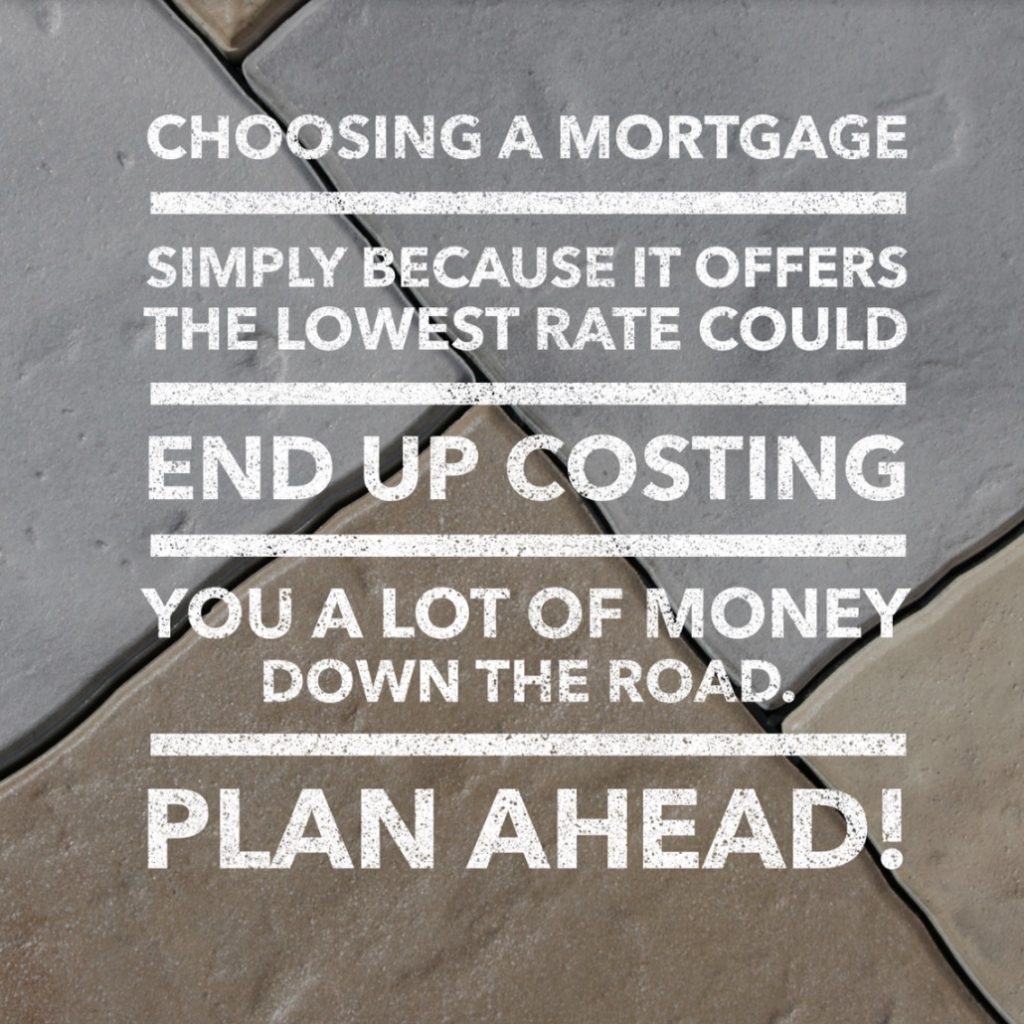There aren’t too many Canadians who are able to save up enough money to pay cash for their home. This is why we have mortgages. A mortgage is a loan made to assist a borrower to purchase a property. The property is held as collateral and interest is charged on the loan. Typically a mortgage will be paid back over 25 years (this is called the amortization), and the amount of interest charged is renegotiated every 1-10 years (this is called the term). Over the long run, borrowing money isn’t cheap, despite interest rates being at an all time low!
So, if you need to borrow money in order to buy a property, your number one goal should be to keep your cost of borrowing as low as possible. Bolded and italicized for emphasis. Now, contrary to what years of marketing messaging would have us believe, this doesn’t always mean choosing the mortgage with the lowest rate. Although choosing a mortgage with a low rate is a part of lowering your borrowing costs, it’s not the only factor.

When looking to lower the overall cost of borrowing throughout the life of your mortgage, there are many factors that should be considered. Here are some of them.
- How long do you anticipate living in the property? This could help you decide an appropriate term.
- Do you plan on moving for work, do you need flexibility down the road with your mortgage?
- What does the prepayment penalty look like if you have to break your term? This is probably the biggest factor in lowering your overall cost of borrowing.
- How is the lender’s interest rate differential calculated, what figures do they use?
- What are the prepayment privileges?
- Can you make lump sum payments, or increase your monthly payments, and how is the interest recalculated when you do pay extra?
- Is the mortgage a collateral charge? This could mean you won’t be able to switch the mortgage upon renewal to another lender without incurring new legal costs.
- Should you consider a fixed rate, variable rate, HELOC, or a reverse mortgage?
- What is the size of your downpayment? Coming up with more money down might lower (or eliminate) mortgage insurance premiums.
What you will often find is that mortgages with the rock bottom, lowest rates, can have potential hidden costs built in to the mortgage terms that will cost you a lot of money down the road. The difference between 2.59% and 2.69% could save you a few bucks a month, while taking a longer fixed rate term and having to break the mortgage halfway through the term could potentially cost you thousands (tens of thousands). And this is really bad for your overall cost of borrowing.
As a mortgage consumer who will potentially buy a handful of houses in their life, your best bet is to work with an independent mortgage professional who has your best interest in mind and knows exactly how to keep your cost of borrowing as low as possible. A mortgage is so much more than just a low rate, it’s really about the fine print.
If you would like to talk more about your financial situation or figure out a plan so you can plan ahead for your mortgage, please contact me anytime!
